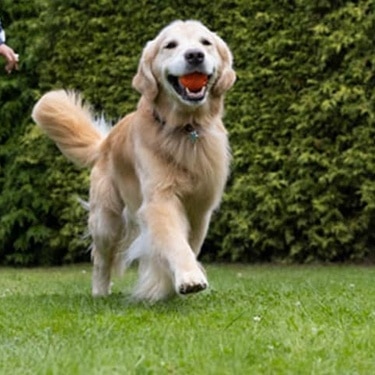
-
Find the right food for your petTake this quiz to see which food may be the best for your furry friend.Find the right food for your petTake this quiz to see which food may be the best for your furry friend.Featured products
 Puppy Food
Puppy FoodHill's Science Plan Puppy Multipack Wet Dog Food with Chicken & Beef are complete premium pet foods for growing puppies from weaning until 1 year old and for pregnant and nursing dogs. Your puppy will love these deliciously smooth and savoury minced loaves, formulated for balanced nutrition and overall health.
Shop Now Adult Wet Dog Food with Beef
Adult Wet Dog Food with BeefHill's Science Plan Adult Multipack Wet Dog Food with Chicken, Beef & Turkey are complete premium pet foods for adult dogs from 1 year. Your dog will love these deliciously smooth and savoury minced loaves, formulated for balanced nutrition and overall health.
Shop Now Mature Adult Dog Food
Mature Adult Dog FoodHill's Science Plan Mature Adult Multipack Wet Dog Food with Chicken & Beef are complete premium pet foods for mature adult dogs from 7 years. Your dog will love these deliciously smooth and savoury minced loaves, formulated to deliver the appropriate amount of energy to support the needs of adult dogs.
Shop NowFeatured products Mature Adult Wet Cat Food with Chicken
Mature Adult Wet Cat Food with Chicken
Tender chicken chunks in gravy for mature adult cats. Made with easy-to-digest ingredients, high-quality protein for lean muscle maintenance and antioxidant vitamins C+E for optimal health.
Shop Now Adult Multipack Wet Cat Food with Beef, Ocean Fish & Chicken
Adult Multipack Wet Cat Food with Beef, Ocean Fish & ChickenTender chunks in gravy for cats, with high-quality protein to maintain lean muscle. With vitamin E and omega-3s & -6s for healthy skin and balanced minerals to support healthy vital organs.
Shop Now Light Adult Multipack Wet Cat Food with Chicken & Ocean Fish
Light Adult Multipack Wet Cat Food with Chicken & Ocean FishTender chicken chunks in gravy for cats, with L-carnitine and fewer calories for ideal weight management. Packed with high-quality protein, omega-6s, and vitamin E for shiny fur and healthy skin.
Shop Now -
Dog
- Dog Tips & Articles
-
Health Category
- Weight
- Food & Environmental Sensitivities
- Urinary
- Digestive
- Joint
- Kidney
-
Life Stage
- Puppy Nutrition
- Adult Nutrition
- Senior Nutrition
Cat- Cat Tips & Articles
-
Health Category
- Weight
- Skin & Food Sensitivities
- Urinary
- Digestive
- Kidney
-
Life Stage
- Kitten Nutrition
- Adult Nutrition
Featured articles The Right Diet For Your Pet
The Right Diet For Your PetIn people, the right diet is very important. If you are eating the wrong way for your metabolism, activity level, age and lifestyle you could end up with health issues.
Read More The Incredible Science Behind Your Pet's Microbiome
The Incredible Science Behind Your Pet's MicrobiomeLearn what your pet's microbiome is, how it contributes to your pet's gut and overall health, and why nutrition is important in maintaining healthy microbiomes.
Read More Show some love with wet foods: a great choice for pets with health issues
Show some love with wet foods: a great choice for pets with health issuesShow some love with wet foods: a great choice for pets with health issues.
Read More -


Many dogs enjoy a ‘spoiled’ lifestyle complete with plush beds, tasty treats and lots of affection. Despite these comforts and care (or even, sometimes as a result of them), they may also experience stress.
Thunder, fireworks, a new baby or other changes in routine or the household can all have an impact on your dog. Beyond mental distress, these stressful events can have an influence on your dog’s physical health. They can lead to things like destructive or aggressive behaviour. But how do you know if your dog is stressed? In this article we’ll have a look at the signs of stress in dogs and what you can do to help.
What are the signs of stress in dogs?
All dogs vary and some signs are much more subtle than others. It’s very important to know the more subtle signs because they are often overlooked and, when missed, may lead to escalating problems. The most common signs of stress in dogs are;
- Yawning. This is one of the most commonly missed signs of stress. Dogs do yawn when they are tired but yawning is one of the earliest signs of a dog feeling uncomfortable or anxious in a situation.
- Lip licking. Like yawning, this is often missed
- Showing the whites of the eyes. This is also known as whale eye.
- Panting.
- Pacing and not being able to settle.
- Shaking or trembling.
- Hiding away or cowering.
- Tail tucked firmly between the legs.
- Ears back, tense face.
- Loss of appetite.
- Diarrhoea or loss of bowel control.
- Urinating in the house.
- Baring the teeth.
- Growling.
Snapping or biting. If your dog appears to be experiencing stress, you should contact your veterinarian to schedule a consultation to fully examine the situation. Pain and illness can be a major cause of the above signs and of anxiety so your vet will want to rule this out before looking at behavioural modification. Your veterinary team can make sure that you get the expert help you need. They may have a qualified behaviourist in the practice or they may refer you to a specialist. Always ask your vet for a referral. In many countries, behaviour counselling is totally unregulated and when it comes to stress and its treatment you need to see someone who knows what they are doing.


Tasty Tips
How to calm a stressed dog and how to help them
One of the most important things you can do is stay relaxed and calm yourself. Dogs are incredibly good at reading their owner’s emotional state and they will definitely pick up on it if you become tense, worried or agitated. Get to know your dog. If you know what triggers them, you can simply try to avoid those situations. The classic example of this is children. Lots of dogs (and many adults!) find children incredibly stressful to be around. If you have visitors coming with children, make sure your dog has a safe space where the children are not allowed to go. Obviously, some dogs find lots of things stressful that you may not be able to avoid. In these cases your veterinarian or behavioural specialist may recommend some combination or all of the following stress management strategies for your dog.
- Take steps to ensure your dog’s and family’s safety – If your dog attempts to escape or run away during a stress trigger, it’s best to move them to a secure location. If your dog exhibits an aggressive response, they should be physically segregated from any potential targets of aggression.
- Never punish a dog showing signs of stress – not only is punishing a stressed or anxious animal inhumane, it will likely increase the dog’s stress and it will damage the bond between you and your dog.
- As we mentioned with the example of children, identify and manage stress triggers.While altogether eliminating stress triggers would be the ideal solution, it is often not feasible. For example, you can’t control thunderstorms but even when a trigger is unavoidable, you can minimise its impact through environmental modification. For example, during a thunderstorm, you can move your dog to an internal room and play background noise.
- Start a behavioural modification programme.With the help of your behaviourist, you can work to desensitise your pet to a stress trigger by exposing them to a modified trigger stimulus, starting at a very low level and gradually increasing the intensity. Another strategy is counterconditioning: influencing your dog to respond to a trigger in a positive way, feeling relaxed instead of stressed. This can be accomplished by pairing exposure to the trigger stimulus with something pleasurable, like food or toys. Desensitisation and counterconditioning are often combined. Both these things must be done with expert guidance, as you can actually worsen fear and stress if these things are done in the wrong way.
- Feed your dog clinical nutrition formulated for stress symptoms.Your veterinarian may also suggest a dietary change introducing a food to help address stress-related digestive upset. A highly digestible nutritional solution formulated with milk protein hydrolysate, prebiotic fibre and ginger can help to address stress-related digestive upset in small dogs.
- Consider lifestyle changes to reduce stress. Just as in humans, regular exercise may contribute to overall stress reduction in your dog. Walking and playing with your dog will help to keep both of you fit and healthy, mentally stimulated and relaxed.
- There are also a number of helpful products on the market to reduce stress, such as pheromones. During your consultation, your veterinarian might also discuss possible drug therapies.
Preventing stress in the first place
Prevention is always better than cure. If at all possible, try to choose a dog or puppy that is relaxed and comes from well-balanced parents with good temperaments. Socialisation and habituation are very important in puppies and young dogs so make sure you talk to your breeder or adoption centre about what has been done already and how you can gradually continue that learning journey. Life can be scary with all the weird and wonderful sights and sounds of family life. Preparing your dog for this in the right way can save a lot of heartache and stress for both of you in the longer term. Talk to your vet about the right way to socialise and habituate your dog if you are unsure.
By Jacqueline Neilson, DVM, DACVB
Reviewed by Dr. Emma Milne BVSc FRCVS, and Dr. Hein Meyer, DVM, PhD, Dipl-ECVIM-CA


One of our staff authors prepared this article for you
Related products

Hill's Science Plan Sensitive Stomach & Skin Adult Wet Dog Food with Chicken is a complete premium dog food for adult dogs from 1 year. This savoury tinned loaf is enriched with ingredients that support digestive health & skin care.

Hill's Science Plan Sensitive Stomach and Skin Small & Mini Adult Dog Food with Turkey is a complete premium pet food for small breed adult dogs aged 1–6 years. This deliciously soft mousse is enriched with ingredients that support digestive health & skin care.

Hill's Science Plan Perfect Digestion Small & Mini Adult Dog Food with Turkey is a complete premium pet food for small breed adult dogs aged 1–6 years. This deliciously smooth mousse is precisely balanced to deliver the appropriate amount of energy and to support digestive health in adult, small breed dogs.

Hill's Science Plan Adult Small & Mini Dog Food with Turkey is a complete premium pet food for adult small dogs from 1 year old that are prone to weight gain or slightly overweight. This deliciously smooth mousse is formulated to deliver the appropriate amount of energy to support weight maintenance in adult dogs.
Related articles

Wondering why your dog is constantly itching? Read on to discover common causes, such as allergies or parasites, and find out how you can help your dog.

Discover the causes, signs, and treatments of kidney disease in dogs and find methods of supporting your dog's kidney health. Learn more at Hill's Pet UK.

Just like every other pet owner, vets are responsible for giving their pets the best possible nutrition, exercise and care needed to keep them healthy and happy.

Dog obesity is a significant problem - learn more about helping your dog become trimmer and healthier through improved nutrition.

Put your dog on a diet without them knowing
Our low calorie formula helps you control your dog's weight. It's packed with high-quality protein for building lean muscles, and made with purposeful ingredients for a flavourful, nutritious meal. Clinically proven antioxidants, Vitamin C+E, help promote a healthy immune system.
Put your dog on a diet without them knowing
Our low calorie formula helps you control your dog's weight. It's packed with high-quality protein for building lean muscles, and made with purposeful ingredients for a flavourful, nutritious meal. Clinically proven antioxidants, Vitamin C+E, help promote a healthy immune system.

